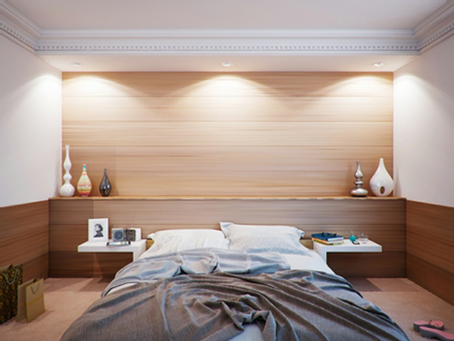
A Guide to Getting Great Beauty Sleep When You’re Over 50
Nothing is better than a good night’s sleep. Our bodies rejuvenate while we’re sleeping, and our brains require rest. When we don’t sleep well, we feel tired and cranky, and our thinking skills tend to suffer as a result. Our skin often shows the first signs of poor sleep; droopy eyelids and dark circles are just the outward signs.
Sleep deprivation can cause high blood pressure and heart complications, among other health issues. Eating healthy and exercising daily are two things you can do to help break the cycle of sleeplessness. Sleeping well makes it easier to make healthy food choices (reaching for a granola bar instead of a doughnut or drinking green tea instead of a double shot espresso) and healthy lifestyle choices (going to the gym instead of flopping into the recliner for the evening).
If you have trouble falling asleep or staying asleep, these strategies can help.
Create an Evening Routine
Having a routine can help you sleep. You should begin this routine an hour before bedtime. Your routine can include things like meditating and reading; aim for 15 to 30 minutes for each of these activities. Also, when you can, include things like spraying a calming scent on your pillow (bergamot and lavender are both good choices) and slathering lotion on your hands (good choices are peppermint and eucalyptus).
Check with Your Doctor
Many physical ailments can prevent you from getting a good night’s sleep. Restless leg syndrome, heart arrhythmia, and kidney problems are all possibilities. A vitamin D deficiency can also disrupt sleep, so have your level tested and follow the doctor’s instructions about boosting it. If you are at risk for sleep apnea, your doctor can order a sleep study and help you get treatment. Visit your doctor if you have more than a few sleepless nights.
Embrace Technology
While it’s generally a good idea to avoid screen time a couple hours before bed, your smartphone can actually help you sleep. There are quite a few sleep apps that you can download that can help you rest easier at night. For instance, the Sleep Time app analyzes your sleep cycles and has calming soundscapes. If you’re currently using an outdated smartphone, it could be time to purchase a new model—one that won’t crash when you run a sleep app. A model like the Google Pixel 3 is perfectly sized and has excellent performance. Whereas the iPhone 11 also performs well and has all-day battery life.
Change Your Décor
Some changes in your environment might help you sleep. Bright colors are stimulating. If your walls are a vibrant color, consider repainting to a soothing color. Pastels — especially blues and earth tones — may help you drift off. Ticking clocks and other noise-makers can keep you from sleeping. So, replace your vintage analog clock with a quiet digital one. Also, fix the leaky toilet that flushes every few hours or install a ceiling fan or run a white noise machine to drown out noises you can’t fix, including nearby traffic, noisy neighbors, and barking dogs.
No-Nos for Sleeping
Some habits can prevent you from falling asleep. Change some of these habits, and see what a difference they can make. For example, don’t drink alcohol or caffeine within six hours of bedtime. Of course, some people can drink coffee all evening and still sleep well, but if you aren’t one of those folks, cut off caffeine well before bedtime. Your friend may swear by having a glass of wine to help him sleep, but if you do this, give it up for a month to see if it makes a difference in your sleep habits. Also, don’t drink any liquid for one hour before bedtime. Sure, you need to stay hydrated, but if you’re drinking 16 ounces of water before bed, your bladder may not be able to make it through the night. Some people can get up to use the bathroom and go right back to sleep, but if that’s not you, hydrate earlier in the evening.
Finally, some medications are “activating” and can keep you awake. Check with your pharmacist to see which meds you take that fall into that category. For example, many antidepressants and thyroid medications should be taken in the morning to prevent the interruption of sleep.
A picture may be worth a thousand words, but sleeping well is worth a goldmine. Get some exercise early in the day and settle into a quiet routine before bedtime to get the most beautifying and healthful benefits from your night’s rest.
Schedule a consultation
By submitting this form you agree to be contacted via phone/text/email.
Schedule a consultation
By submitting this form you agree to be contacted via phone/text/email.

